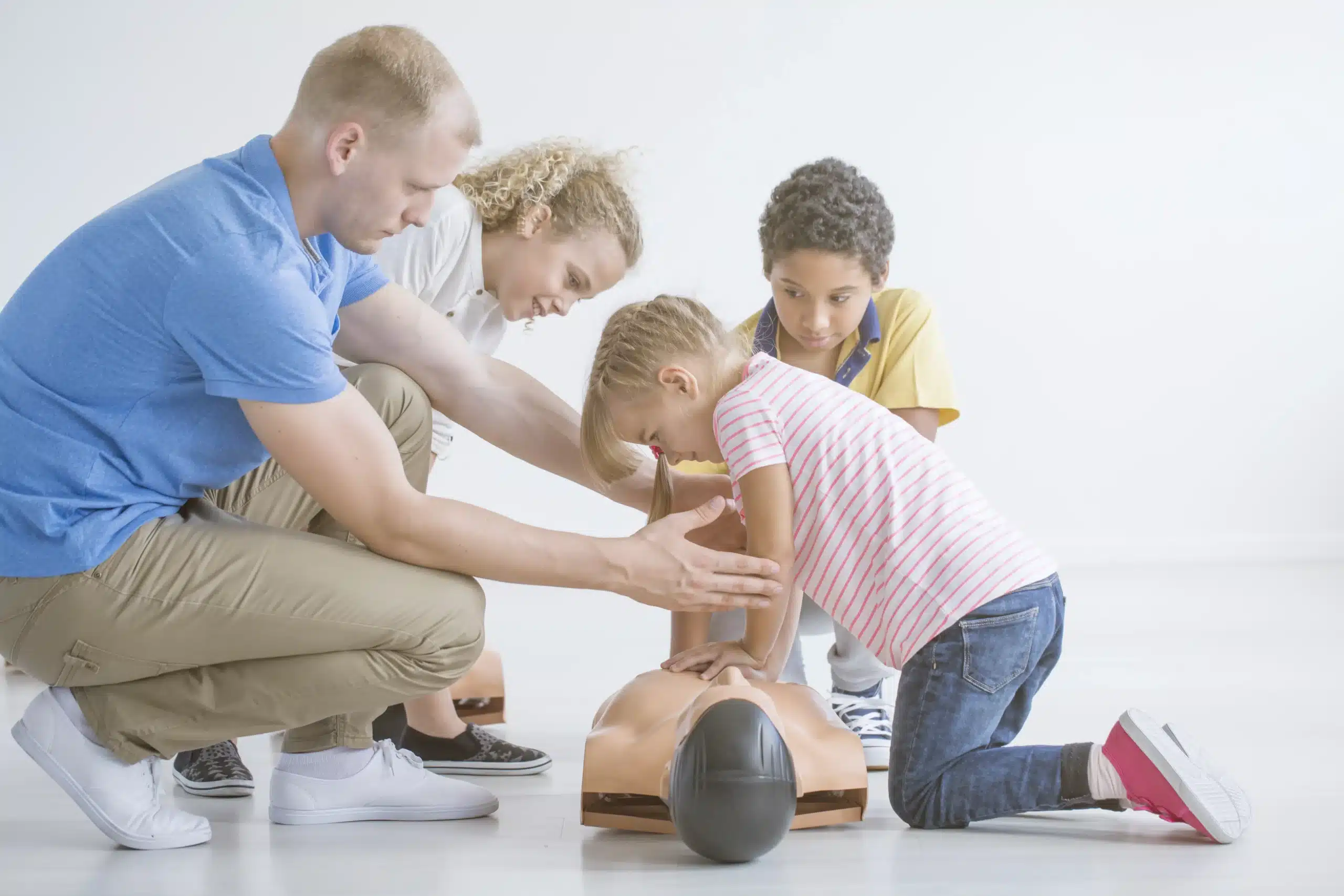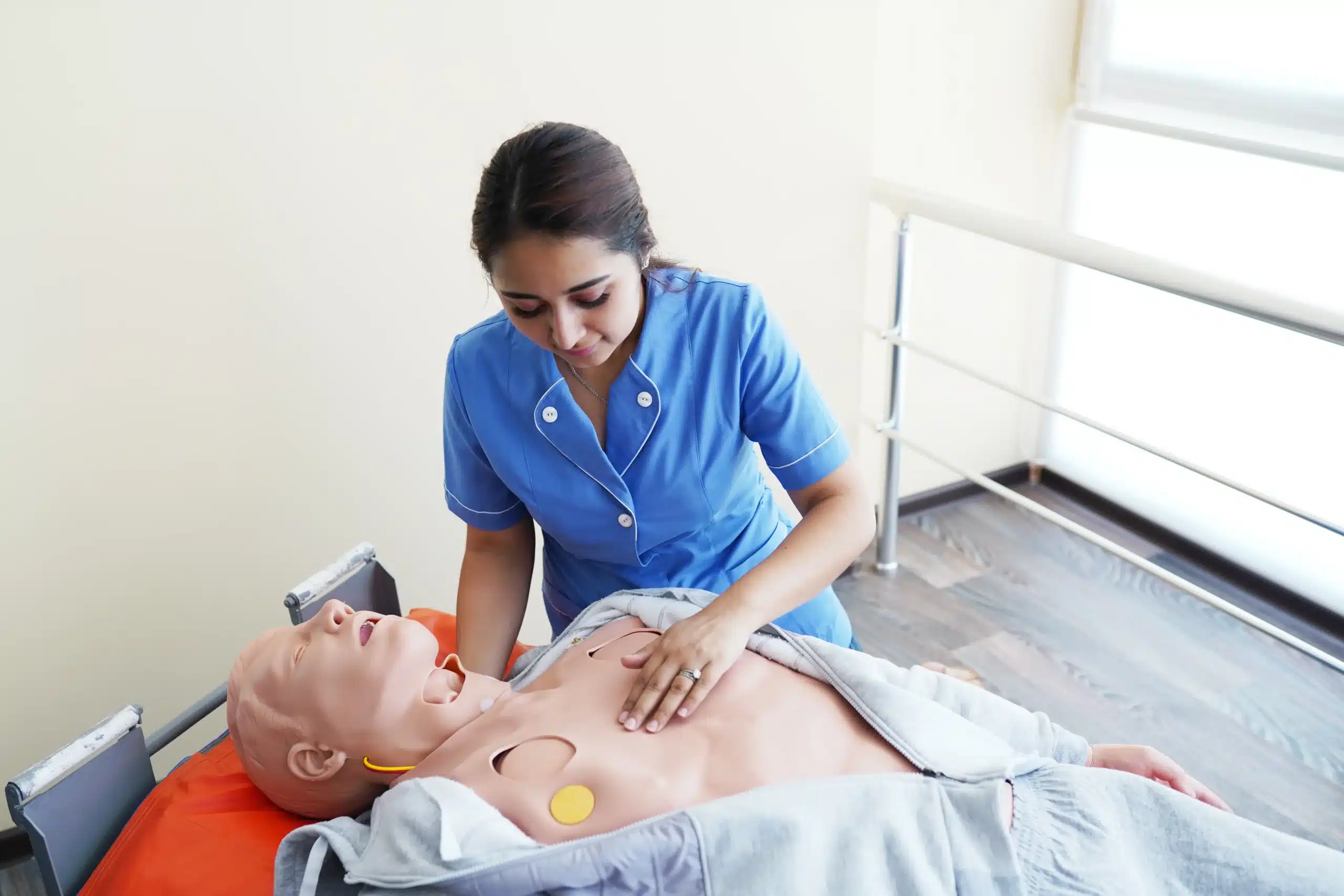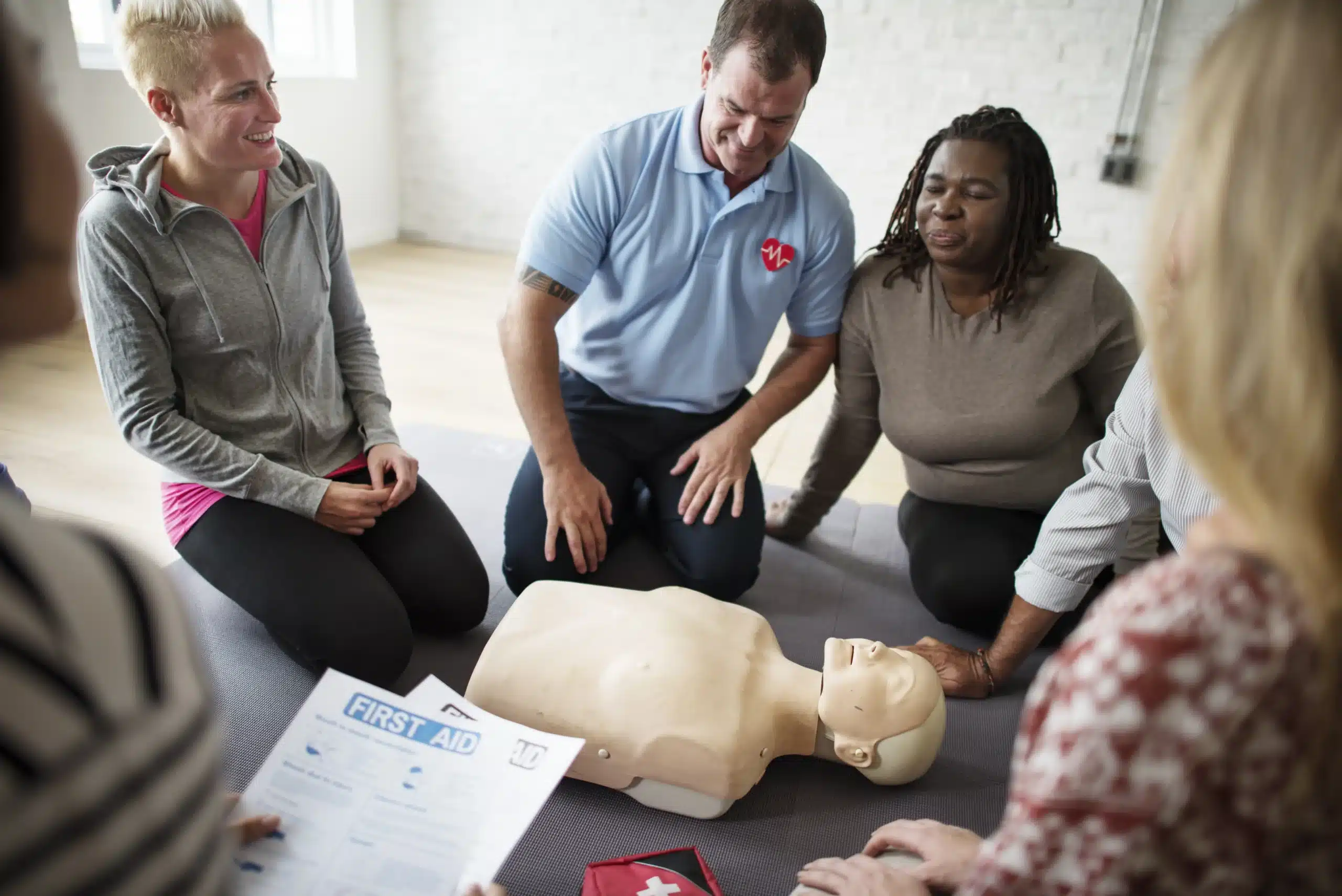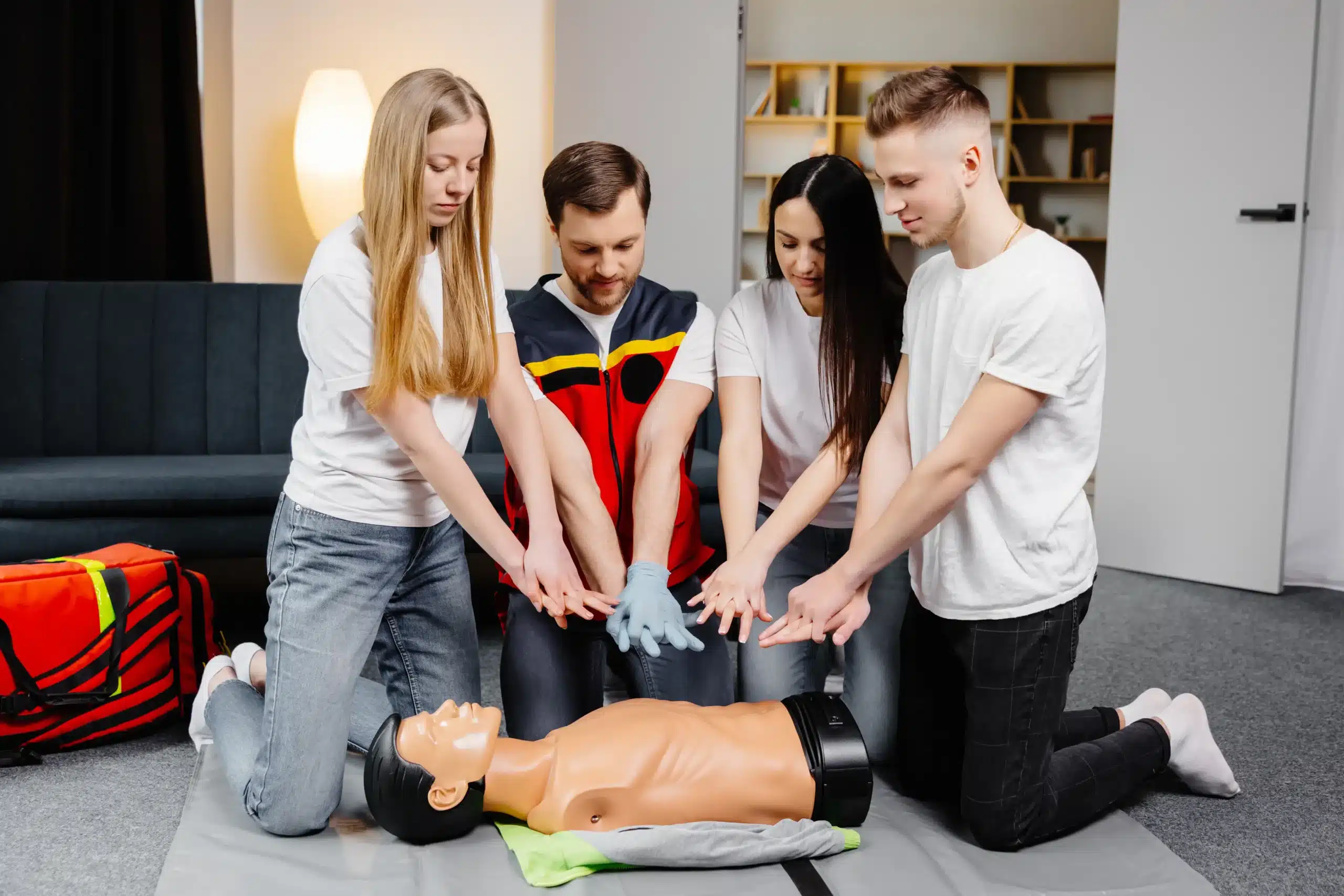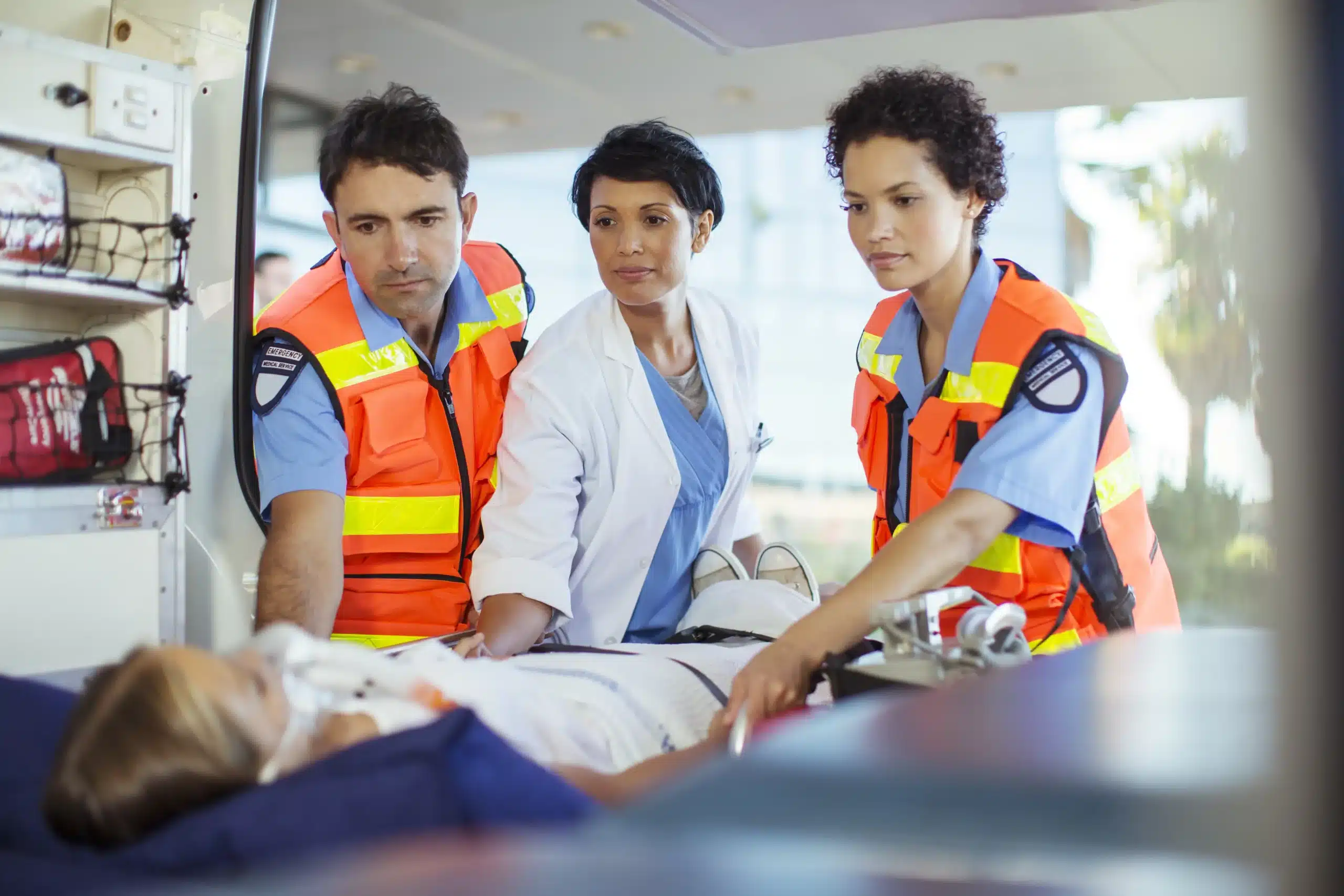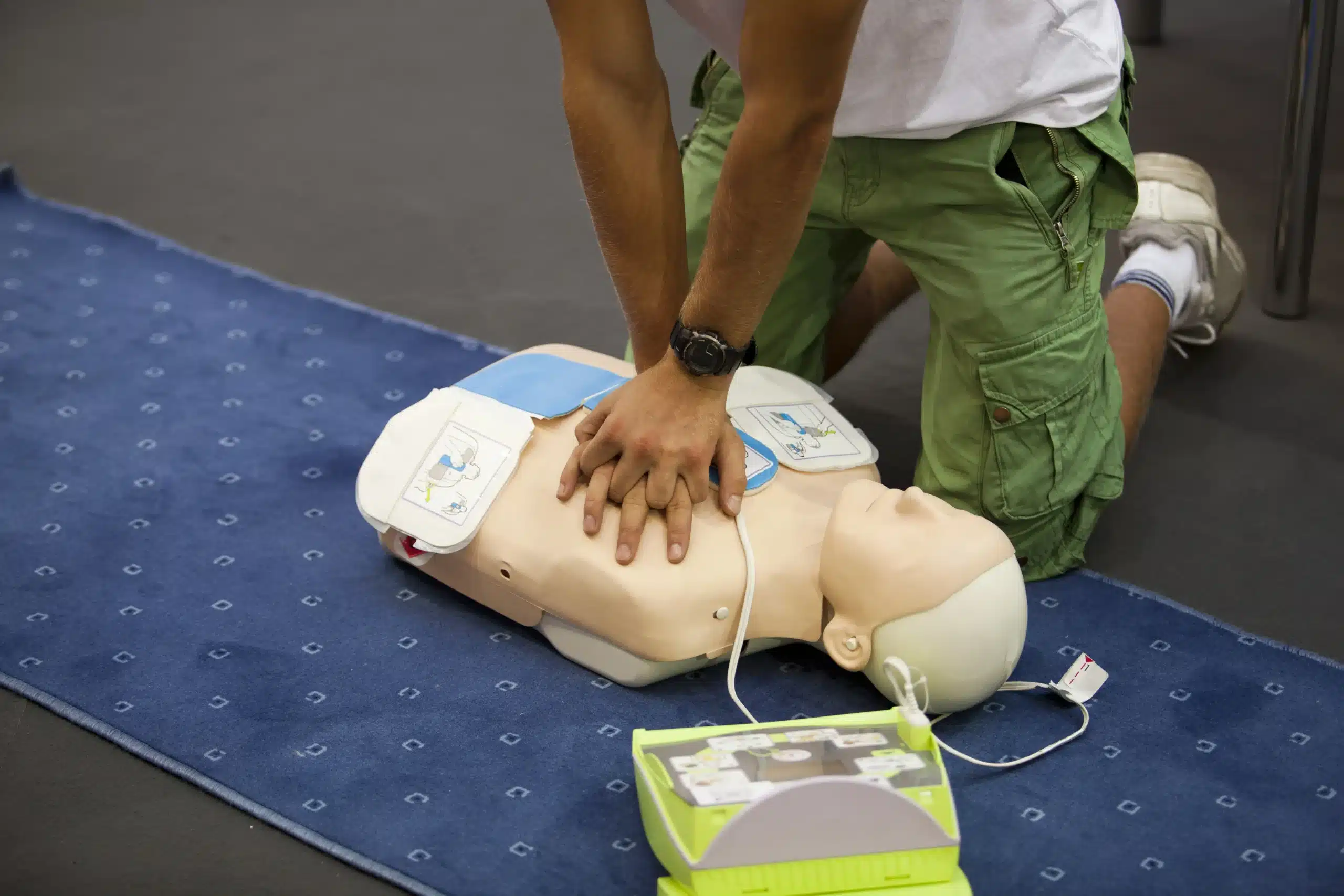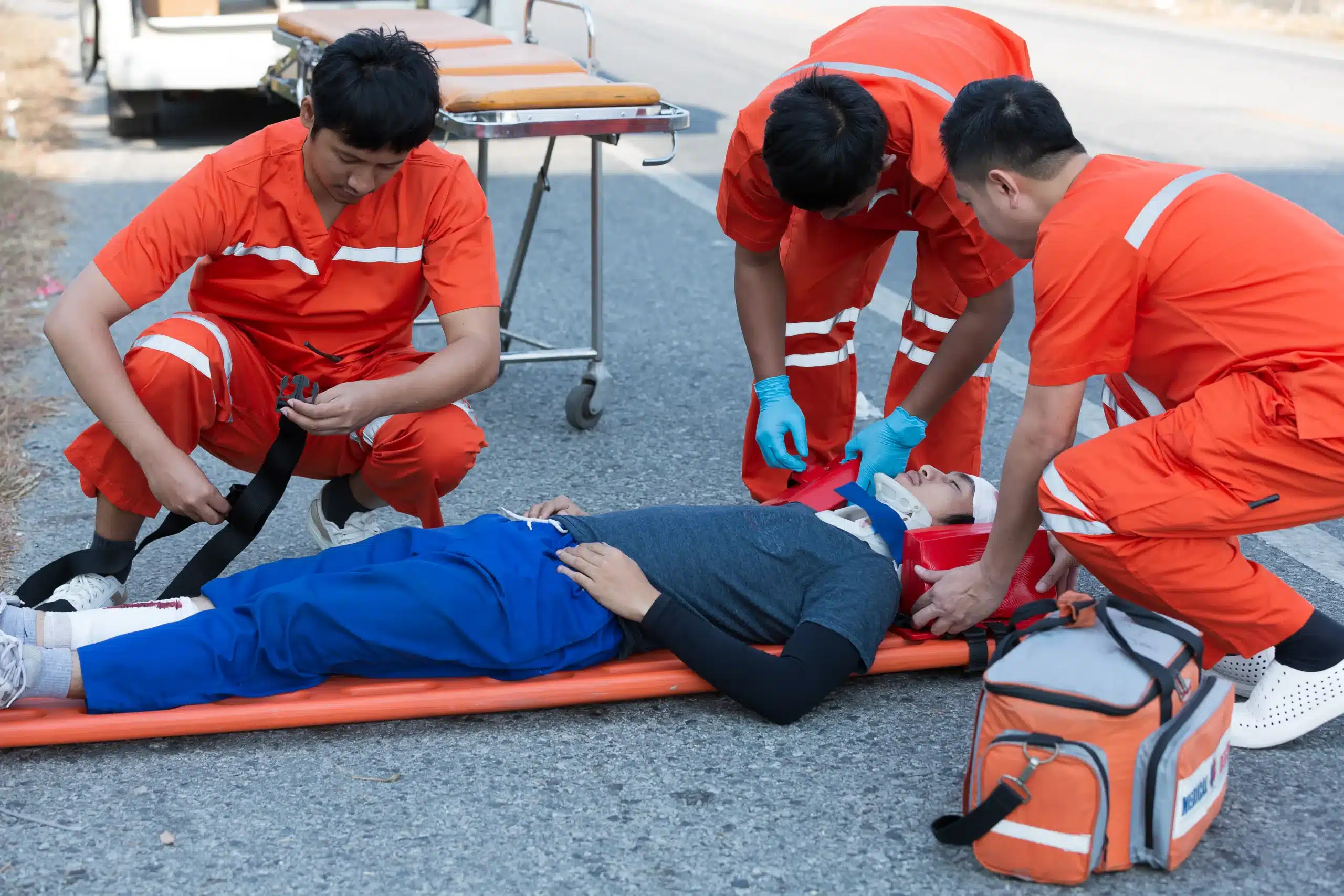Emergencies can happen anytime, anywhere. Being equipped with life-saving skills like CPR can make all the difference. This guide explores the ins and outs of CPR certification in Livermore, offering valuable insights into the various CPR courses available, the importance of proper training, and how to choose a reputable provider. We’ll also debunk common CPR myths and provide practical tips for maintaining your certification. Whether you’re seeking CPR certification for your profession or personal growth, this guide is your go-to resource.
Key Takeaways
- CPR certification builds confidence for real-world emergencies: Formal training provides the skills and knowledge to effectively administer life-saving techniques like CPR, making you a valuable resource in a crisis.
- Finding the right CPR course involves key considerations: Look for reputable organizations, experienced instructors, and convenient scheduling. Think about your learning style and whether online, in-person, or blended learning best suits your needs.
- Maintaining CPR skills is essential for effective emergency response: Stay current with the latest guidelines and refresh your knowledge and skills regularly. Consider continuing education opportunities and renewal courses to ensure you’re always prepared.
What is CPR Certification?
CPR certification equips you with the skills to respond effectively during cardiac arrest and other medical emergencies. While you’re not legally required to have certification to perform CPR, a formal CPR course ensures you’re properly trained to administer this life-saving technique. These courses cover essential skills like chest compressions and rescue breaths, providing a structured learning experience that builds confidence and competence. Knowing you have the right training can make a critical difference in a stressful, real-world emergency.
CPR Course Types
Livermore offers a variety of CPR certification levels to meet diverse needs. These include Basic Life Support (BLS), Advanced Cardiovascular Life Support (ACLS), and Pediatric Advanced Life Support (PALS). Whether you’re a healthcare provider, a concerned parent, or simply someone who wants to be prepared, you can find a course tailored to your experience level. When choosing a course, look for reputable organizations like the American Heart Association (AHA) or the Red Cross. Also, consider a provider that offers a comprehensive range of courses, including First Aid, to round out your skillset.
Who Needs CPR Training?
CPR training is valuable for anyone who wants to be prepared for a medical emergency. Healthcare professionals, including doctors, nurses, and medical students, often require CPR certification for their jobs. Other professions that benefit from CPR training include childcare providers, teachers, coaches, lifeguards, and personal trainers. Parents, grandparents, and other family members can also gain peace of mind by learning CPR. Essentially, anyone who interacts with others, especially children or the elderly, can benefit from this invaluable skill. These courses, often led by experienced instructors, provide comprehensive training to prepare you for various emergency situations. For those caring for infants, pediatric CPR training is especially crucial, teaching you how to respond if an infant’s heartbeat and breathing stops.
Common CPR Training Misconceptions
Several myths surround CPR training that can hinder effective emergency response. One common misconception is that CPR instantly revives victims. In reality, CPR helps maintain blood flow and oxygen to vital organs until professional medical help arrives. Another myth is that CPR alone can restart a stopped heart. While CPR is a critical first step, it’s often part of a larger chain of survival that includes defibrillation and advanced medical care. Understanding these facts is crucial. Believing these myths can lead to delayed action in emergencies, potentially increasing the risk of fatalities. It’s important to seek training from a reputable provider to separate fact from fiction and gain the accurate knowledge needed to save lives. You can learn more about common CPR myths from resources like CPR Class Organizations.
Find the Right CPR Provider
Finding the right CPR training provider is crucial for a valuable learning experience. Here’s what to consider:
Accreditation and Instructor Qualifications
Look for providers offering American Heart Association (AHA) or Red Cross certification. These are widely recognized and accepted. A good provider will offer a range of courses, including Basic Life Support (BLS), Advanced Cardiovascular Life Support (ACLS), Pediatric Advanced Life Support (PALS), and First Aid, catering to various needs and experience levels. Experienced instructors are essential for comprehensive training that prepares you for diverse emergency situations. Dublin CPR Classes offers all these courses, ensuring there’s one tailored to you.
Course Reviews and Customer Service
Before committing to a CPR class, check out reviews and testimonials. Positive feedback reflects the quality of instruction and the overall learning environment. A dedicated customer service team can also smooth your registration process and answer any questions. Dublin CPR Classes prides itself on its commitment to customer satisfaction.
Scheduling Options
A convenient schedule is key, especially for busy lifestyles. Look for providers that offer classes seven days a week, with various time slots. This flexibility makes it easier to fit CPR training into your schedule.
Online vs. In-Person Training
Consider whether online or in-person training better suits your learning style. Online CPR training offers flexibility, allowing you to learn at your own pace. However, in-person classes provide hands-on practice and direct interaction with instructors. Many providers now offer blended learning, combining online coursework with in-person skills sessions. RQI classes are a great option for this blended approach.
Evaluate Course Factors
Before enrolling, clarify your training goals. Think about who you’ll most likely be performing CPR on (adults, children, or infants) and choose a relevant course. Also, consider the course format, duration, and whether it includes hands-on practice and skills testing. Dublin CPR Classes offers group discounts, making it cost-effective for families, businesses, or community groups. They also have a low price guarantee, ensuring quality training at a competitive price.
CPR Certification Costs & Courses
Knowing the cost of CPR certification and the different courses available can help you plan your training. Let’s break down the typical costs associated with various CPR certifications in Livermore, including BLS, ACLS, PALS, and First Aid. Remember, prices can vary based on the provider and the specific course format, so it’s always a good idea to check directly with the training center. Dublin CPR Classes offers a low price guarantee to help make training accessible.
BLS Certification
BLS (Basic Life Support) certification is designed for healthcare professionals like doctors, nurses, and EMTs. It’s also valuable for anyone who wants to be prepared for a medical emergency. These courses cover core skills such as high-quality CPR, AED use, and how to help someone who is choking. In Livermore, BLS certification typically costs between $70 and $150.
ACLS Certification
ACLS (Advanced Cardiovascular Life Support) certification goes a step further than BLS. It’s essential for healthcare providers responding to cardiovascular emergencies. ACLS courses cover advanced life-saving techniques and typically cost between $150 and $300 in Livermore, depending on the training center and whether the course includes the certification exam.
PALS Certification
PALS (Pediatric Advanced Life Support) certification is specifically designed for healthcare providers working with children. Like ACLS, PALS courses involve a combination of theoretical knowledge and practical skills. The cost for PALS certification in Livermore is generally between $150 and $300.
First Aid Certification
First Aid certification is a valuable addition to your CPR training. It equips you to handle a wide range of medical situations, from minor cuts and burns to more serious injuries. First Aid certification is often bundled with CPR training and usually costs between $50 and $100. Consider adding this training when you register for a CPR course.
Group Discounts
If you’re looking to certify a group of people, such as your workplace or community organization, ask about group discounts. Many training centers in Livermore offer reduced rates for group bookings, which can make training more affordable.
Get CPR Certified
Getting CPR certified is straightforward and empowers you to make a real difference in an emergency. Here’s what you can expect at Dublin CPR Classes:
Steps to Certification
First, select a CPR course that fits your needs. We offer a variety of courses, from basic CPR to advanced certifications like ACLS and PALS. Once you’ve chosen, simply register for an upcoming class. We offer flexible scheduling to accommodate busy lifestyles.
Course Format and Duration
Our CPR courses are designed to be efficient and effective. Most classes run between three and six hours, depending on the specific certification. This compact format helps you gain the necessary skills without a major time commitment. For course details and schedules, visit our website. We also offer group discounts for workplaces, community groups, or families.
Hands-On Training
We believe hands-on practice is essential for mastering CPR. Our classes include extensive hands-on training with mannequins, allowing you to develop muscle memory and confidence in performing compressions and rescue breaths. Our instructors provide personalized feedback to help you refine your technique.
Skills Testing
After the training, you’ll participate in a skills test to demonstrate your CPR proficiency. This practical assessment ensures you can effectively apply the techniques you’ve learned. Our instructors will guide you through the process and offer support.
Receive Your Certification
Once you’ve completed the course and passed the skills test, you’ll receive your CPR certification, valid for two years. We make the certification process smooth and efficient. For convenient online recertification when your certification expires, Dublin CPR Classes offers RQI classes.
Maintain Your CPR Certification
Keeping your CPR skills sharp is crucial for responding effectively in emergencies. Just like any other important skill, CPR requires regular practice. This section covers everything you need to know about maintaining your certification and staying up-to-date with the latest guidelines.
Certification Validity
CPR certifications, especially those from well-regarded organizations like the American Red Cross, are typically valid for two years. It’s essential to keep track of your certification’s expiration date to ensure you’re always ready to help when needed. For more information on CPR certification and validity, check the American Red Cross website.
Renewal Process
Renewing your CPR certification is straightforward. First, check your current certification card for the expiration date. Next, research the specific renewal requirements from the organization that issued your certification. Most organizations offer refresher courses to update your skills and knowledge. These courses often involve a written exam and a skills demonstration to ensure you meet the current standards.
Continuing Education
Even if your certification isn’t up for renewal yet, consider participating in continuing education courses. These courses offer a great way to refresh your skills and learn about the latest CPR techniques and guidelines. Local providers, such as Dublin CPR Classes, offer convenient renewal courses to help you maintain your certification and stay prepared for emergencies.
Stay Updated
Staying informed on the latest CPR guidelines and best practices is vital for providing effective assistance in emergencies. Organizations like the American Heart Association regularly update their CPR protocols. Staying aware of these changes can significantly improve your ability to respond effectively. Regularly review updates and consider participating in refresher courses to maintain your skills and knowledge. For more insights on CPR best practices and common myths, read this article on debunking CPR myths.
CPR Providers in Livermore
Finding the right CPR class can feel overwhelming, but Livermore residents have several excellent options. Whether you’re a healthcare professional needing BLS certification or a parent wanting to learn CPR, there’s a course for you. Here’s a rundown of CPR providers in the Livermore area:
Dublin CPR Classes
Dublin CPR Classes offers American Heart Association (AHA) BLS certification and focuses on affordable, high-quality training. They even have a low-price guarantee, making them a budget-friendly choice. Conveniently located, they serve Dublin, Livermore, and San Ramon. Check out their BLS course page for details. They also offer group discounts, a great option for workplaces or community groups.
Safety Training Seminars
Safety Training Seminars, a woman-owned AHA Training Center, provides various AHA courses, including BLS, ACLS, PALS, CPR, and First Aid. They offer classes seven days a week in Livermore and surrounding areas, making scheduling easier. Visit their website to learn more and register for a course.
Bay Area CPR
Bay Area CPR offers a range of CPR and first-aid classes, from basic CPR to advanced certifications like BLS, ACLS, and PALS. They also offer group discounts and incorporate online components for some courses, providing flexibility. Explore their Livermore classes to find the right fit.
American Red Cross
The American Red Cross is a well-known provider of CPR/AED training and certification. They offer various learning formats, including in-person, online, and blended learning, catering to different learning styles. Find a local Red Cross CPR class in your area.
American Heart Association Training Centers
Many AHA Training Centers are located throughout Livermore, offering various CPR certification levels. Whether you need BLS, ACLS, or PALS, you can find a course tailored to your needs. This guide to CPR certification in Livermore offers helpful information on available options.
Local Hospitals and Medical Centers
Often, local hospitals and medical centers in Livermore provide CPR training and certification, frequently geared towards healthcare providers. Contact your local hospital or medical center directly for information on their courses.
Related Articles
- Why CPR is Crucial in Healthcare
- CPR Courses in Dublin: Find the Right One For You – Dublin CPR Classes
- Debunking Common CPR Myths for Better Preparedness
- CPR Courses in San Ramon: Find the Right Class for You – Dublin CPR Classes
- CPR Classes in Dublin: Your Complete Guide – Dublin CPR Classes
Frequently Asked Questions
How do I choose the right CPR class for me? Think about who you’re most likely to use CPR on – adults, children, or infants – and choose a course that focuses on those groups. Also, consider your current knowledge. If you’re a healthcare provider, you might need an advanced course like ACLS or PALS. If you’re a parent or just want basic knowledge, a standard CPR/First Aid course is a great starting point. Finally, think about your learning style. Do you prefer in-person instruction or the flexibility of online learning? Many providers offer both.
What’s the difference between CPR and First Aid certification? CPR focuses specifically on life-saving techniques for cardiac arrest and breathing emergencies. First Aid covers a broader range of medical situations, from minor cuts and burns to more serious injuries. While they are separate certifications, they complement each other well. Many providers offer combined CPR/First Aid courses, which is a great way to be prepared for various emergencies.
How long does CPR certification last, and how do I renew it? CPR certification is typically valid for two years. When it’s time to renew, contact the organization that originally certified you (like the American Heart Association or Red Cross). They’ll guide you through the renewal process, which usually involves a refresher course and a skills test. Don’t wait until the last minute – start the process a few months before your certification expires to avoid any gaps in your qualification.
Why is it important to get certified through a reputable organization? Certification from a recognized organization like the American Heart Association or Red Cross ensures your training meets established standards. This is important for your own confidence and may be a requirement for certain jobs or volunteer positions. Plus, employers and organizations often prefer certifications from these well-known providers.
What if I’m nervous about performing CPR in a real emergency? It’s completely normal to feel nervous about using CPR in a real-life situation. That’s why good training programs emphasize hands-on practice and realistic scenarios. This helps build your confidence and prepares you to react effectively under pressure. Remember, even basic CPR can significantly improve someone’s chances of survival until professional help arrives.


